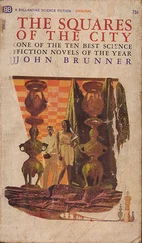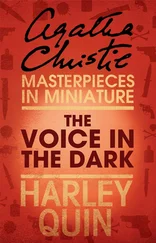O'Henry - The Voice of the City
Здесь есть возможность читать онлайн «O'Henry - The Voice of the City» весь текст электронной книги совершенно бесплатно (целиком полную версию без сокращений). В некоторых случаях можно слушать аудио, скачать через торрент в формате fb2 и присутствует краткое содержание. Жанр: Классическая проза, Юмористическая проза, на английском языке. Описание произведения, (предисловие) а так же отзывы посетителей доступны на портале библиотеки ЛибКат.
- Название:The Voice of the City
- Автор:
- Жанр:
- Год:неизвестен
- ISBN:нет данных
- Рейтинг книги:5 / 5. Голосов: 1
-
Избранное:Добавить в избранное
- Отзывы:
-
Ваша оценка:
- 100
- 1
- 2
- 3
- 4
- 5
The Voice of the City: краткое содержание, описание и аннотация
Предлагаем к чтению аннотацию, описание, краткое содержание или предисловие (зависит от того, что написал сам автор книги «The Voice of the City»). Если вы не нашли необходимую информацию о книге — напишите в комментариях, мы постараемся отыскать её.
The Voice of the City — читать онлайн бесплатно полную книгу (весь текст) целиком
Ниже представлен текст книги, разбитый по страницам. Система сохранения места последней прочитанной страницы, позволяет с удобством читать онлайн бесплатно книгу «The Voice of the City», без необходимости каждый раз заново искать на чём Вы остановились. Поставьте закладку, и сможете в любой момент перейти на страницу, на которой закончили чтение.
Интервал:
Закладка:
At ten o'clock on the next day the two stood at the door of Lawyer Mead's office in Ann Street.
Ide's nerves fluttered worse than ever when the hour approached; and Vallance could not decide to leave him a possible prey to the dangers he dreaded.
When they entered the office, Lawyer Mead looked at them wonderingly. He and Vallance were old friends. After his greeting, he turned to Ide, who stood with white face and trembling limbs before the expected crisis.
"I sent a second letter to your address last night, Mr. Ide," he said. "I learned this morning that you were not there to receive it. It will inform you that Mr. Paulding has reconsidered his offer to take you back into favor. He has decided not to do so, and desires you to understand that no change will be made in the relations existing between you and him."
Ide's trembling suddenly ceased. The color came back to his face, and be straightened his back. His jaw went forward half an inch, and a gleam came into his eye. He pushed back his battered bat with one hand, and extended the other, with levelled fingers, toward the lawyer. He took a long breath and then laughed sardonically.
"Tell old Paulding he may go to the devil," he said, loudly and clearly, and turned and walked out of the office with a firm and lively step.
Lawyer Mead turned on his heel to Vallance and smiled.
"I am glad you came in," he said, genially. "Your uncle wants you to return home at once. He is reconciled to the situation that led to his hasty action, and desires to say that all will be as -"
"Hey, Adams!" cried Lawyer Mead, breaking his sentence, and calling to his clerk. "Bring a glass of water Mr. Vallance has fainted."
THE PLUTONIAN FIRE
There are a few editor men with whom I am privileged to come in contact. It has not been long since it was their habit to come in contact with me. There is a difference.
They tell me that with a large number of the manuscripts that are submitted to them come advices (in the way of a boost) from the author asseverating that the incidents in the story are true. The destination of such contributions depends wholly upon the question of the enclosure of stamps. Some are returned, the rest are thrown on the floor in a corner on top of a pair of gum shoes, an overturned statuette of the Winged Victory, and a pile of old magazines containing a picture of the editor in the act of reading the latest copy of Le Petit Journal, right side up - you can tell by the illustrations. It is only a legend that there are waste baskets in editors' offices.
Thus is truth held in disrepute. But in time truth and science and nature will adapt themselves to art. Things will happen logically, and the villain be discomfited instead of being elected to the board of directors. But in the meantime fiction must not only be divorced from fact, but must pay alimony and be awarded custody of the press despatches.
This preamble is to warn you off the grade crossing of a true story. Being that, it shall be told simply, with conjunctions substituted for adjectives wherever possible, and whatever evidences of style may appear in it shall be due to the linotype man. It is a story of the literary life in a great city, and it should be of interest to every author within a 20mile radius of Gosport, Ind., whose desk holds a MS. story beginning thus: "While the cheers following his nomination were still ringing through the old courthouse, Harwood broke away from the congratulating handclasps of his henchmen and hurried to Judge Creswell's house to find Ida."
Pettit came up out of Alabama to write fiction. The Southern papers had printed eight of his stories under an editorial caption identifying the author as the son of "the gallant Major Pettingill Pettit, our former County Attorney and hero of the battle of Lookout Mountain."
Pettit was a rugged fellow, with a kind of shamefaced culture, and my good friend. His father kept a general store in a little town called Hosea. Pettit had been raised in the pine-woods and broom-sedge fields adjacent thereto. He had in his gripsack two manuscript novels of the adventures in Picardy of one Gaston Laboulaye, Vicompte de Montrepos, in the year 1329. That's nothing. We all do that. And some day when we make a hit with the little sketch about a newsy and his lame dog, the editor prints the other one for us -or "on us," as the saying is -and then -and then we have to get a big valise and peddle those patent air-draft gas burners. At $1.25 everybody should have 'em.
I took Pettit to the red-brick house which was to appear in an article entitled "Literary Landmarks of Old New York," some day when we got through with it. He engaged a room there, drawing on the general store for his expenses. I showed New York to him, and he did not mention how much narrower Broadway is than Lee Avenue in Hosea. This seemed a good sign, so I put the final test.
"Suppose you try your band at a descriptive article," I suggested, "giving your impressions of New York as seen from the Brooklyn Bridge. The fresh point of view, the -"
"Don't be a fool," said Pettit. "Let's go have some beer. On the whole I rather like the city." We discovered and enjoyed the only true Bohemia. Every day and night we repaired to one of those palaces of marble and glass and tilework, where goes on a tremendous and sounding epic of life. Valhalla itself could not be more glorious and sonorous. The classic marble on which we ate, the great, lightflooded, vitreous front, adorned with snow-white scrolls; the grand Wagnerian din of clanking cups and bowls the flashing staccato of brandishing cutlery, the piercing recitative of the white-aproned grub-maidens at the morgue-like banquet tables; the recurrent lied-motif of the cash-register -it was a gigantic, triumphant welding of art and sound, a deafening, soul-uplifting pageant of heroic and emblematic life. And the beans were only ten cents. We wondered why our fellow-artists cared to dine at sad little tables in their so-called Bohemian restaurants; and we shuddered lest they should seek out our resorts and make them conspicuous with their presence.
Pettit wrote many stories, which the editors returned to him. He wrote love stories, a thing I have always kept free from, holding the belief that the well-known and popular sentiment is not properly a matter for publication, but something to be privately handled by the alienists and florists. But the editors had told him that they wanted love stories, because they said the women read them.
Now, the editors are wrong about that, of course. Women do not read the love stories in the magazines. They read the poker-game stories and the recipes for cucumber lotion. The love stories are read by fat cigar drummers and little ten-year-old girls. I am not criticising the judgment of editors. They are mostly very fine men, but a man can be but one man, with individual opinions and tastes. I knew two associate editors of a magazine who were wonderfully alike in almost everything. And yet one of them was very fond of Flaubert, while the other preferred gin.
Pettit brought me his returned manuscripts, and we looked them over together to find out why they were not accepted. They seemed to me pretty fair stories, written in a good style, and ended, as they should, at the bottom of the last page.
They were well constructed and the events were marshalled in orderly and logical sequence. But I thought I detected a lack of living substance -it was much as if I gazed at a symmetrical array of presentable clamshells from which the succulent and vital inhabitants had been removed. I intimated that the author might do well to get better acquainted with his theme.
"You sold a story last week," said Pettit, "about a gun fight in an Arizona mining town in which the hero drew his Colt's .45 and shot seven bandits as fast as they came in the door. Now, if a six-shooter could -"
Читать дальшеИнтервал:
Закладка:
Похожие книги на «The Voice of the City»
Представляем Вашему вниманию похожие книги на «The Voice of the City» списком для выбора. Мы отобрали схожую по названию и смыслу литературу в надежде предоставить читателям больше вариантов отыскать новые, интересные, ещё непрочитанные произведения.
Обсуждение, отзывы о книге «The Voice of the City» и просто собственные мнения читателей. Оставьте ваши комментарии, напишите, что Вы думаете о произведении, его смысле или главных героях. Укажите что конкретно понравилось, а что нет, и почему Вы так считаете.











